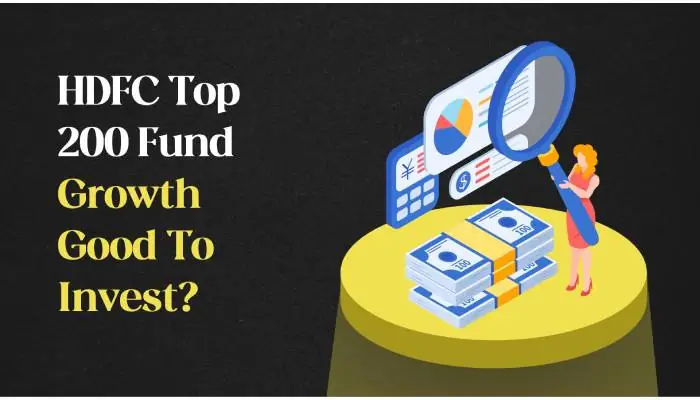
When it comes to personal finance, one of the smartest strategies is to make your money work for you—both in terms of returns and tax efficiency. Among the various investment options available in India, tax saving mutual funds have emerged as a popular and efficient way to grow wealth while reducing taxable income. But what exactly are tax saving mutual funds, and why should you consider investing in them?
In this article, we’ll explore everything you need to know about tax saving mutual funds—how they work, their benefits, risks, and why they deserve a place in your portfolio.
What Are Tax Saving Mutual Funds?
Tax saving mutual funds, also known as Equity Linked Savings Schemes (ELSS), are a type of mutual fund that qualifies for tax deductions under Section 80C of the Indian Income Tax Act, 1961. These funds primarily invest in equities and related instruments and have a mandatory lock-in period of three years, which is the shortest among all tax-saving instruments under Section 80C.
Investors can claim a tax deduction of up to ₹1.5 lakh per financial year by investing in ELSS funds, potentially saving up to ₹46,800 in taxes (assuming the highest tax bracket of 30%).

Key Features of Tax Saving Mutual Funds
1. Tax Benefits Under Section 80C
The primary attraction of ELSS is its tax benefit. Investments up to ₹1.5 lakh annually qualify for tax deduction, making it a dual-benefit product—saving tax and creating wealth.
2. Equity Exposure
ELSS funds invest at least 80% of their portfolio in equity and equity-related instruments, offering higher growth potential compared to traditional tax-saving instruments like PPF and NSC.
3. Shortest Lock-In Period
With just a three-year lock-in, ELSS funds offer better liquidity than other tax-saving options like PPF (15 years) or fixed deposits (5 years).
4. Option for SIP and Lump Sum
Investors can choose between Systematic Investment Plans (SIP) and lump sum investments, allowing for flexible and disciplined investing.
How Do Tax Saving Mutual Funds Work?
When you invest in an ELSS, your money is pooled with that of other investors and managed by a professional fund manager. The fund manager allocates the capital into a diversified portfolio of equities across various sectors and market capitalizations.
Here’s how your investment benefits you:
- Growth through capital appreciation of stocks over time
- Compounding returns, especially through SIPs
- Tax deduction, reducing your overall taxable income
Benefits of Investing in Tax Saving Mutual Funds
1. High Return Potential
Since ELSS funds invest in the equity market, they offer the potential for higher returns compared to traditional tax-saving avenues like FD, NSC, or PPF. Over a long period, ELSS funds have historically delivered 10-12% annual returns.
2. Wealth Creation
By staying invested beyond the three-year lock-in, you benefit from market cycles and long-term compounding, turning small investments into significant wealth.
3. Lower Lock-in & Higher Liquidity
Unlike PPF or other long-term investments, ELSS allows you to access your funds after just three years, giving you better liquidity without compromising on tax benefits.
4. Professional Management
Your investment is managed by experienced fund managers who analyze markets, sectors, and companies to make informed investment decisions.
5. Systematic Investment Discipline
SIPs in ELSS not only reduce the burden of lump-sum investments but also promote regular savings and enable rupee cost averaging—helping mitigate market volatility.
Who Should Invest in Tax Saving Mutual Funds?
Tax saving mutual funds are ideal for:
- First-time investors who want to start equity investing with tax benefits.
- Salaried individuals seeking to maximize deductions under Section 80C.
- Young professionals with a long investment horizon and higher risk appetite.
- Taxpayers looking for better post-tax returns than traditional options.
However, like all equity investments, ELSS funds are subject to market risks and should be chosen based on your risk tolerance and financial goals.
Risks Involved in Tax Saving Mutual Funds
While ELSS funds offer significant benefits, they are not risk-free. Since these funds invest in equities, the Net Asset Value (NAV) can fluctuate based on market movements. Here are a few risks to consider:
- Market Risk: Returns depend on the performance of the stock market.
- Volatility: Equity funds can be volatile in the short term.
- Fund Manager Risk: The performance also depends on the expertise of the fund manager.
To mitigate these risks:
- Choose funds with consistent long-term performance.
- Stay invested beyond the lock-in period.
- Diversify your investments across asset classes.
How to Choose the Right Tax Saving Mutual Fund?
Here are some key factors to consider when selecting a tax saving mutual fund:
- Historical Performance: Look at 5- and 10-year returns, not just recent ones.
Fund Manager’s Track Record: A good fund manager can make a significant difference. - Expense Ratio: Lower expense ratios mean higher net returns.
- Portfolio Diversification: Ensure the fund has a diversified portfolio across sectors and market caps.
- Ratings and Reviews: Check independent ratings from platforms like Morningstar or Value Research.
Taxation of ELSS Funds
Though you get a deduction under Section 80C, the returns from ELSS are subject to Long-Term Capital Gains (LTCG) tax. If your capital gains exceed ₹1 lakh in a financial year, the excess is taxed at 10% without indexation.
For example:
- Invested: ₹1.5 lakh
- After 3 years: ₹2.1 lakh
- Gain: ₹60,000 → No LTCG tax (under ₹1 lakh)
Conclusion
Tax saving mutual funds are not just about saving taxes—they are about building wealth efficiently. With a unique blend of tax benefits, equity exposure, professional management, and a relatively short lock-in period, ELSS funds offer a compelling proposition for anyone looking to get smarter with their money.
Whether you’re new to investing or looking to diversify your tax-saving portfolio, ELSS can be a valuable addition that aligns tax planning with long-term financial growth.